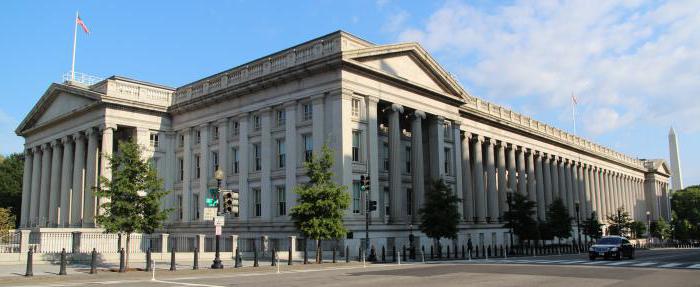In the current Russian legislation it is customary to distinguish the following types of ownership: private, state and municipal property. It would be advisable to more specifically consider state ownership as an independent category, as well as all aspects inherent in the relevant topic.

The concept of state-owned property
The concept of state ownership involves one form of ownership. It is important to note that its administrators, which are entities, are government bodies. Among the objects of state type of property include the following positions: natural resources, buildings, cash, territory, information, jewelry, spiritual and cultural values. All of them are discussed in detail in subsequent chapters.
As a financial category, the concept of state ownership implies the adaptation of property complexes to society in the person of representative bodies of the state form of government. It should be noted that they are elected in a certain order.
Property rights
It is interesting to know that the right of state ownership gives a large-scale set of legal standards that consolidate and protect the belonging of amenities of a material nature to the population (people from the corresponding locality) represented by the representative structure of state power elected by him. These legal standards determine the procedure for the acquisition, use and, of course, the alienation of municipal property complexes.
It is interesting to know that the principal specificity of state ownership is that the structure that owns it (in other words, the government) also refers to the bodies that regulate relations with it. So, the management system of objects owned by the state is formed and perceived personally by the owner.

What should be attributed to state ownership?
What objects would be appropriate to attribute to the state ownership system? Currently, the following items are subject to registration of state property:
- Property complexes that belong in accordance with the right of ownership of Russia (we are talking about federal property).
- Property complexes that belong in accordance with the right of ownership to the constituent entities of the Russian Federation (autonomous-type districts, autonomous regions, federal cities, regions, territories, republics).
- Territory, other natural resources (for example, natural resources of Russia). An important condition is their exclusion from public ownership (ownership of urban entities, legal entities and individuals).

Specific objects
As it turned out, under state ownership it is necessary to understand property complexes belonging in accordance with the right of ownership of the Russian Federation or its subjects. Among the objects of the law in question, it is important to highlight the following points:
- World Natural Heritage Sites.
- Shelf resources of continental importance.
- Resources of the marine zone of the economic orientation of Russia.
- Artistic values of the national type.
- The historical values of the national type.
- State banks.
- State treasury (state budget funds).
- Monetary Fund.
- Gold reserve.
- State real estate.
- Diamond Fund and so on.

Types of state ownership
It is important to note that the concept of state ownership involves a certain classification of its objects, which are presented in the previous chapter. So, the types of state type of property include:
- Objects of production of the defense plan.
- Objects that form the basis of state wealth (natural resources of Russia, objects of natural and historical-cultural heritage, artistic values, and so on).
- Objects of economic sectors. It is important to add that they provide the formation and vital activity of the economic sectors of the ethnic economy.
- Objects necessary for the organization of the proper functioning of federal structures of government and power, as well as for solving tasks of national significance (state treasury, property complexes of the armed forces, and so on).
- Roads for cars of the federal level for single use (the structures serving them will also be appropriate here).
State Property Values
The concept of state ownership implies its heterogeneity. In addition, this provision can be confirmed through Article 214 of the current civil law. It is important to note that at present, it is customary to distinguish two values in the state ownership of the Russian Federation:
- State ownership of the direct constituent entities of the Russian Federation.
- Federal property.

Relationship Entities
You need to know that the subjects of the relationships presented in the previous chapter, which, in one way or another, are vested with the right of state ownership, are considered today:
- Explicit structures of the municipal administration of regional and national significance (administrations, committees, ministries).
- Leadership of the country.
- Separate municipal structures.
Distribution of property
It should be remembered that state-owned property complexes are assigned to municipal structures and institutions in operational management or economic management in accordance with Articles 294 and 296 of the Civil Code of the Russian Federation. In addition, they form the municipal treasury.
It is important to note that property complexes located in state ownership can be assigned to institutions and enterprises of the municipal type on the following conditions:
- Ownership.
- The right to use.
- The right of disposal.
It should be added that the budget funds of the corresponding level, as well as state-owned property complexes that are not attached to institutions of municipal importance, form the municipal treasury of Russia, the treasury of autonomous okrugs, autonomous oblast, federal megacities, oblasts, territories, and also republics.

Property Features
The municipal type of property today plays an important role in the activities of the Russian Federation regarding ensuring financial conviction and sustainability, thanks to the implementation of the following socially oriented functions:
- Formation of material prerequisites for the organization of stable production (sufficiently) of public capital.
- Permission to the state to be called an independent unit in terms of financial relations both abroad and within the state.
- Granting guarantees of the functioning of various areas and sectors of the economy (financial security, space industry).
- Granting guarantees of appropriate activities by the public non-profit field.
- The provision of guarantees of national security.
- The ability to assist in accelerating the development of high technology.
- Nationalization of property of ruined structures.
- The implementation of the functions of the guarantor of almost all domestic and international approvals and agreements.
- Activities related to the provision of suitable conditions for the formation of such a category as private enterprise.
- Granting resolution in terms of equalizing crisis impacts through tax reduction techniques. By the way, in this case, spare funds are often used.
Property Management
Under the management of the state type of property should be considered the management of the process of its effective use and reproduction in accordance with the necessary scale and quality. In addition, management can be defined as the activities of municipal structures; embodiment of the rights of ownership, use, as well as decisions regarding objects of nationality; the role of the constituent entities of the Russian Federation and civil law relations.
Management functions
It is important to note that property management of state significance is implemented:
- In strict accordance with Russian civil law, as well as other acts of a regulatory nature that are involved in the regulation of property affairs in the Russian Federation.
- The system of federal structures of the executive type of power, including special bodies authorized by the government; municipal committees; government authorized agencies; ministries; Government of the Russian Federation.
Further, it will be advisable to consider the key functions of state property management, which are directly assigned to the Ministry of Property Relations of the Russian Federation. Thus, the structures that manage, use, and provide guidance on property of state importance, implement the following functions of a fundamental nature:
- Management of a stake in municipal nature.
- Development and implementation of a strategy related to the management of municipal economic development.
- Formation of municipal programs of a motivated plan, as well as government orders and projects.
- Creation of a competitive structure in relation to the management of the facilities of the sector in question, adapted to modern market conditions.
- Development of a pricing policy in the event of a change between market entities and municipal institutions.
- The solution of current and strategic tasks on the resource support of municipal enterprises (structures).

Privatization and privatization
In the process of transferring the Russian economy to market-type relations, one of the key tasks has become privatization or privatization of property. The categories presented are considered highly complex and at the same time controversial operations. That is why, in their implementation, the government undertakes to play a fairly energetic role. One way or another, it must balance the interests of the whole society and individuals.
Under privatization should be considered the process of turning the state type of property into a personal one relative to legal and physical persons; transfer of rights related to ownership from the state to private individuals in accordance with the criteria for the sale of municipal structures to private individuals. This also includes the sale of a certain percentage of assets and the delegation of rights relating to the resolution of municipal property complexes.
Denationalization should be understood as a decrease in the share of state ownership in its entirety. It is important to note that today its main focus is the privatization of city and state property. So, the denationalization of relations regarding property is advisable to reduce to three fundamental nuances:
- The formation of different types of farms (structures).
- Transformation of farms that remained in municipal jurisdiction; their absolute release from administrative-command methods.
- Privatization fully discussed above.